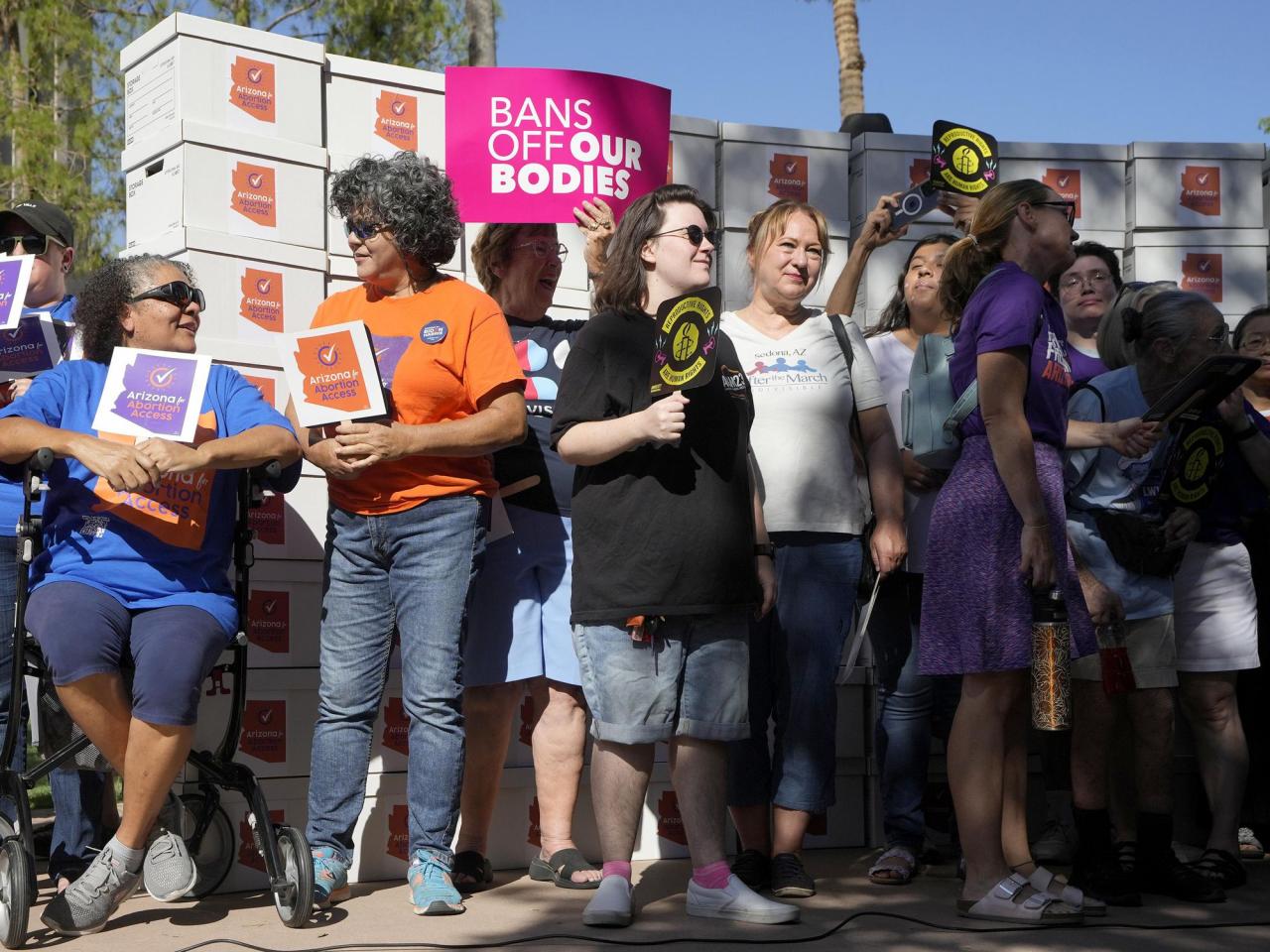What to know about legal battles on details of abortion rights ballot measures across US
Abortion access ballot measures are the center of a new wave of legal and procedural questions across the U.S.
Opponents of abortion access have focused on the technicalities at a time when votes have been siding with abortion access advocates. That side has prevailed on all seven ballot questions in the last two years. Abortion-related measures are on November ballots in six states — and that number could grow.
There have been disputes about how official documents should describe the measures and the details of whether they qualify for the ballots at all.
Here’s what to know about the latest wave of legal questions.
In Arizona, election officials are still verifying whether there are enough valid signatures to add a measure protecting abortion rights to the ballot.
Even with that question lingering, there’s a dispute over how to describe the measure in a pamphlet to be provided to voters as a resource.
A Republican-led legislative committee wants it to describe a fetus as an “unborn human being.”
Arizona for Abortion Access this week filed a lawsuit trying to block the use of that phrase, arguing it’s politically charged and chosen to rally opposition to the measure.
Arkansas election officials on Wednesday rejected petitions to put an abortion-rights measure to voters there, sparking a disagreement that hasn’t moved to the courts yet.
The secretary of state’s office said the petitions submitted earlier this month did not include the required statements regarding paid signature gatherers.
The group pushing for the ballot measure, Arkansas for Limited Government, said they did turn in what they were supposed to. But the state maintains its position, and it could be headed to court.
The organizations behind two Montana ballot measures — including one to ensure abortion rights — this week sued the secretary of state’s office over changes it made to the rules about whose signatures may be accepted to support ballot measures.
Secretary of State Christi Jacobsen told counties last month that they must reject the signatures of voters who are inactive — those who fail to vote in a general election and who have not responded to efforts to confirm their mailing address.
The groups promoting the ballot measures say that position runs afoul of the state constitution, which calls for petitions to be signed by qualified electors — U.S. citizens over 18 who meet registration and residency requirements.
A hearing on the issue is scheduled for Tuesday.
Petitions for amendments to protect abortion rights and to eliminate partisan primary elections were submitted in June.
The developments this week are just the latest round of conflicts about abortion ballot questions.
In South Dakota, the Life Defense Fund last month sued to block an abortion rights measure that’s on the November ballot. That case is still pending in court.
Judges’ rulings have been crucial in getting amendments to guarantee abortion rights on the ballot in Florida and Nevada.
The top state court in New York on Thursday agreed with a lower court decision that put an amendment to bar discrimination over “gender identity” and “pregnancy outcomes” before voters. A judge in May took it off the ballot after finding a procedural error by lawmakers who had put it there.
Last year, Ohio voters rejected a requirement that constitutional amendments get 60% of the popular vote just months before approving an amendment to add abortion rights to the state constitution.
The ballot questions are part of a resetting of state abortion policies after a 2022 U.S. Supreme Court ruling that ended the nationwide right to abortion. Most Republican-controlled states have begun enforcing restrictions — including 14 that now have bans on abortion at all stages of pregnancy, with limited exceptions.
